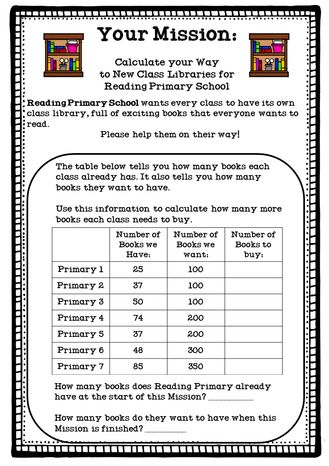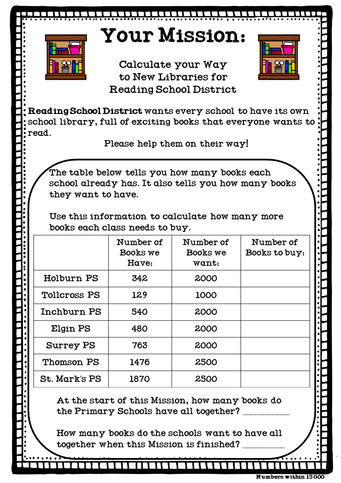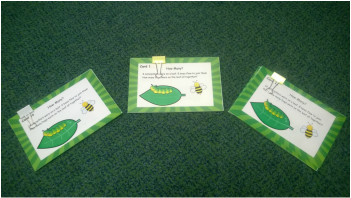
Here in Scotland, we still have about 6 weeks left of the school year. It will be a bit longer in the rest of the UK, while many schools in the States have either finished for the year, or have only a few weeks left (I'm jealous!).
We are doing a bit of data handling at the moment in maths. My class is finding that a bit more engaging, which we need, now that warmer weather and sunny days appear to have arrived (I hope I haven't jinxed us by writing that...).
Throughout the year, our class has been raising awareness of reading in our school as part of the First Minister's Reading Challenge, and one of our goals has been to raise money to add books to all of the
We are doing a bit of data handling at the moment in maths. My class is finding that a bit more engaging, which we need, now that warmer weather and sunny days appear to have arrived (I hope I haven't jinxed us by writing that...).
Throughout the year, our class has been raising awareness of reading in our school as part of the First Minister's Reading Challenge, and one of our goals has been to raise money to add books to all of the
class libraries. It's much easier to have productive 'Personal Reading' time in classes if there is a wider range of books in each class to choose from.
So, using the theme of adding books to class libraries, I created a Data Handling project for my class. As I have a P4/5 composite this year, I've made 2 differentiated versions of it. The P4 version (available if you click on the picture above) works with numbers to 1000 (although most of the sums are within 200, and larger addition and subtraction problems generally use round numbers).
The P5 version (available if you click on the picture below) works with numbers to 15,000 (and I've modified the project so the class is finding out how many books schools are adding to their school libraries, since the numbers are much bigger).
Both versions are primarily addition and subtraction based, although some multiplication and place value knowledge is reviewed as well. They both also come with Answer Keys, for ease of marking.
In using this with my class, I've printed it off as a booklet, which has worked well. The project file is done in colour, but you can easily print it off in black and white - that's what I do.
I hope this saves a few people some time and keeps your class entertained as we count down to summer!
So, using the theme of adding books to class libraries, I created a Data Handling project for my class. As I have a P4/5 composite this year, I've made 2 differentiated versions of it. The P4 version (available if you click on the picture above) works with numbers to 1000 (although most of the sums are within 200, and larger addition and subtraction problems generally use round numbers).
The P5 version (available if you click on the picture below) works with numbers to 15,000 (and I've modified the project so the class is finding out how many books schools are adding to their school libraries, since the numbers are much bigger).
Both versions are primarily addition and subtraction based, although some multiplication and place value knowledge is reviewed as well. They both also come with Answer Keys, for ease of marking.
In using this with my class, I've printed it off as a booklet, which has worked well. The project file is done in colour, but you can easily print it off in black and white - that's what I do.
I hope this saves a few people some time and keeps your class entertained as we count down to summer!



 RSS Feed
RSS Feed